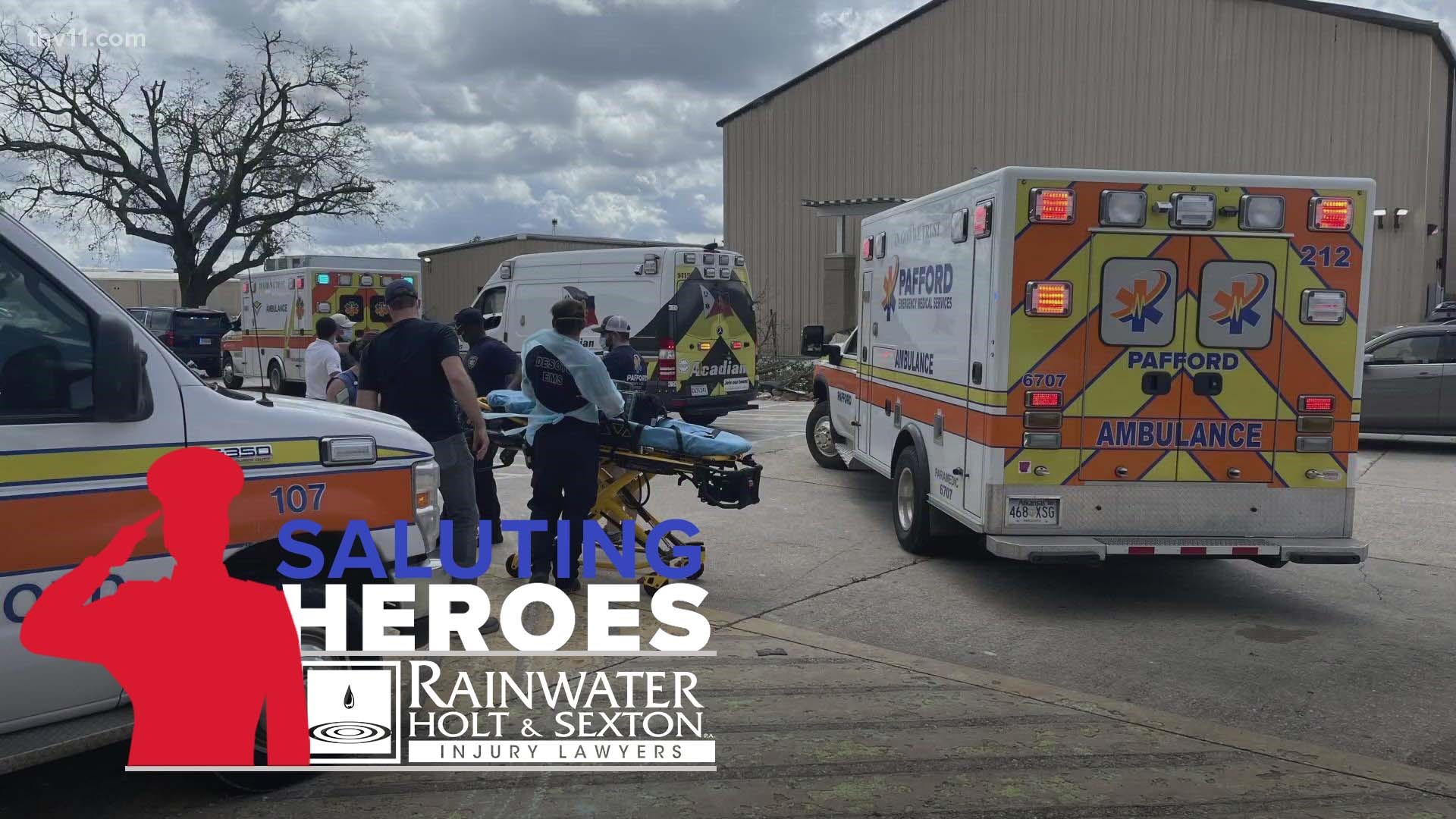LITTLE ROCK, Ark. — Television shows make us think we know what saving a life with CPR looks like, but then Buffalo Bills player Damar Hamlin's heart stopped on the football field and led some of the most fearsome grown men in the world to weep at the sight.
The EMTs who saved Hamlin have been rightly celebrated for their skill under pressure with 65,000 people looking on, but stop for a moment and consider how often they have to live through trauma like that.
"At least on a weekly if not daily basis there's something in the EMS field that could make a grown man cry, football player or otherwise," said Patrick McIntire, president of the state EMT Association and a firefighter in Maumelle.
"This isn't an easy job," said Amanda Newtown, the president of the Arkansas Ambulance Association.
The organization represents ambulance companies like the one she runs in Columbia County.
"A lot of people can't do this job, they don't want to do this job," Newtown added.
So that makes the ones that do want the job, precious.
"There are people who want to help folks, and this is a great place for them to get in and help folks, and when we get them in, we want to keep them," said K.C. Jones, a veteran paramedic, and chaplain who helps lead critical incident stress management teams.
"Our mindset is to go help other people," said Newton. "We're not always really good about slowing down and realizing, hey, we need to receive the help that we're used to giving."
"Our people really think they're heroes and think that they're made of iron, but they're not," said Jones, who splits the workload with Newton while based in Harrison. "We're live, flesh and blood, and we weren't designed to see the things we see."
Supervisors have been on alert, and crews are being taught that when they see those awful things like mass casualty events or things involving kids or colleagues— don't hesitate.
"We try to make initial contact with the responders within the first 24 hours just to kind of touch base and make sure they're okay," said Newton, regarding the CISM teams. "Within the next 24 to 72 hours, we try to have a formal debriefing meeting where we bring them in and discuss the incident."
"It's talking to others a lot of times peer to peer," said McIntire. "You can talk it out and it's not good to bottle it up."
These professionals have learned that stress management can lengthen, and even saves careers. This is a time when we need career lifesavers out there saving lives.
"We tell them you need to guard your calling, by accepting the resources that are there to help you," said Newton. "Because you want to be able to take care of yourself so you can take care of others."
"It's all about coping skills and understanding that there are things people out here to help them, to talk to them, to assist them as they go through their life trauma," Jones described.

